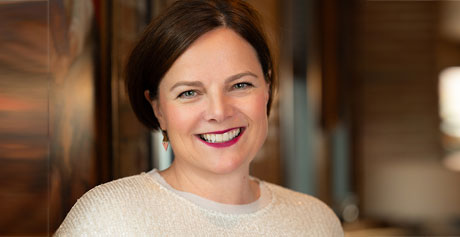An Exclusive Interview With Casey Cunningham, CEO/Founder, of XINNIX a Premier Leadership, Operations & Sales Performance Company

Q: What inspired you to launch a business in sales training and leadership?
CC: My parents inspired me in different ways to start my journey of success toward having a sales and leadership training business. My inspiration from my Dad came from the fact that he was an entrepreneur, so I got to see the fruit of his labors as a child. But regrettably, he passed away when I was very young. However, I still believe I am continuing his business ownership legacy.
My Mom inspired me because she always told me to be the very best at anything that I do, and this is why having a high standard of excellence has always been an integral part of my life. When my Mom asked me what career path I wanted to pursue, I told her that I wanted my career to influence people positively and to open the door to financial success since she struggled to afford to raise five kids as a widow.
I equated financial success to a career in sales because there was commission involved and no caps on earnings. What surprised me was that I was blessed to be good at building relationships and energizing others around me. While I was experiencing sales success at a major company, there was an opportunity for me to oversee the training and development of their sales team. I could drive them to sell more products by using techniques that worked well for me, while using my ability to help energize their success.
My experience led me to realize that many sales teams don’t have adequate training. Most sales representatives were only trained to know the product. Still, they were not trained on how to take a consultative approach, build a relationship, or connect with the deeper needs of their prospects – all of which I could do.
These skills, insights, and faith in God led me to believe I could do sales and leadership training under my own company. So, I stepped out and launched my own business.
Q: What was the most difficult thing that you had to overcome when starting your own company?
CC: The most challenging thing to overcome was building everything from the ground up. Because I didn't choose the pathway of venture funding, I was self-funded, so this meant that I did not have the liberty to hire a lot of staff to help me run my company in the beginning phases. I wore many hats, from driving sales to launching marketing campaigns, and, from rolling out new products to running my financials. My initial team members, albeit small, were significant difference-makers in the future of XINNIX.
My sleep deprivation initially was very challenging and exhausting. But all of my hard work paid off because I have grown and scaled my company to over $10M in revenue annually.
Q: Why is having a positive workplace culture so important to how you run your organization?
CC: Having a positive workplace culture is so important to me because I know firsthand what it's like to work for an organization where the culture is toxic. A culture where people are publicly minimized and humiliated and where people don't feel safe. Can you imagine walking into a boardroom not knowing if you would be the target of the day or if you would get attacked for sharing a big idea?
This experience taught me the importance of having a positive culture where people feel seen, heard, valued, and appreciated. In fact, the cultural standards in my company are non-negotiable because we must uphold the tenets of valuing and respecting our talent and helping them grow and achieve their career goals. It's also crucial that we take the time to celebrate accomplishments as a team and find ways to have fun in the workplace.
When people are happy, they stay on board with organizations longer. They have positive conversations about their day at work when sitting at the dinner table with their family, and they tend to be healthier and more productive over the long haul.
Also remember, we only have so much time in a day. So, it's essential to enjoy the people you work with and that they enjoy working with you as well.
Q: Can you name one trend in the marketplace that is impacting how leaders identify and grow their talent?
CC: The new remote workforce significantly impacts how leaders identify and grow their talent.
When it comes to identifying good talent, many interview processes are still being conducted virtually, so this requires managers to not only be able to ask the right questions, but to also be able to pick up on other cues like the body language and personality traits of their candidates over a video call.
When it comes to growing talent, remote work presents challenges because growth comes when people are attached to your culture. So, companies must find innovative ways to facilitate their culture daily through virtual connections when face-to-face is impossible. Managers must implement processes to make personal touchpoints and connections with people while ensuring work is done effectively.
Some companies are balancing out their remote dynamics by doing hybrid workplaces that allow their teams to come in a few times a week to have personal interactions and facilitate team connectivity. While other companies are taking things a step further by implementing fun activities like ice cream socials, theme parties, and events to help employees stay inspired and engaged.
Whatever a company chooses, it must intentionally drive a positive culture experience for its onsite or virtual teams.
Q: Can a manager be good at their job but challenged when leading people? If so, why?
CC: Yes, it's true that managers can be good at their actual jobs but still require more skills when managing other people. You can manage things, you can manage results, and you can manage projects, but managing people is a totally different discipline, and many people need to be trained for this. Managers are trained to work hard, achieve company goals, and help shape the company's direction, but quite often they need to learn how to manage people. Interestingly, in order for managers to shape the company’s direction they have to do this through people, so learning how to lead them is essential.
At XINNIX, we teach leaders how to develop skills to transform their people and to grow and engage their teams at another level. We share insights on how to equip their teams with the skills they need to be top performers. We also train leaders on how to cultivate a culture of excellence.
Q: What is one word of advice you can offer to young women who want to reach your level of success?
CC: Be sure to do your homework. In fact, I wish someone had given me this advice early on during my pathway toward success.
Doing your homework means researching and finding someone you want to model and then studying them to learn how they achieved success and learning to avoid pitfalls that impede success.
Also, it's essential to try to find a good mentor who has already accomplished what you want to achieve. You'll learn that you often don't have to recreate the wheel but follow their pathways.
Getting sage advice from someone who has been there and done that can help you get to where you want to go faster, especially since this advice can keep you from going through the same struggles they encountered.
Q: What advice would you give to young women who want to pursue their dream and start a business?
CC: The first thing I would say is, "Go for it." I am passionate about living without regret, so if you have the vision to start it, embrace the courage to pursue your dream of business ownership. Of course, it will be challenging, so start by finding multiple businesses like the one you want to be in, study these operations, and then create your business plan with your unique value proposition.
After visiting several training companies and asking for advice from key leaders I respected, I remember the sage advice to this day. Everyone unanimously shared, "Cash flow is king." Over time, I understood the advice. No matter how much money you have on the books, if that money has yet to be transacted into your organization, it will cause you to come up short when it's time to facilitate payroll. If you can't make payroll, you can't keep the lights on. Your employees' livelihoods are in your hands, so ensuring you can address cash flow is critical for any business operation.
Also, before launching a business, I recommend you know your "why." Is it to make money, leave a legacy for your kids, improve the quality of life, or build and sell it? Your "why" should be factored into how you develop your business model to reach your success level.
Note that when launching a business, make sure you have the conviction that failure is not an option because you can anticipate there will be hard times and your commitment will be challenged. Over the years, I realized that hard times open the door to better times as challenges provide an opportunity to sharpen the saw.
Q: What advice would you give to young women who want to succeed in the workplace?
CC: My advice would be to encourage them to always do more. My Mom taught me that if they ask you to work 8 hours, you do 10 hours. Or, if they ask you to make 10 sales calls, you make 20 calls. Average people get average results. To stand out, you must do more.
But if you do more secretly, you will still be challenged to advance. You must advocate for yourself. Very few people in business know how to "promote themselves." Let me explain. Early on, this came naturally to me without realizing the impact on my career until much later. I kept my leadership in the know about what I was achieving by copying my boss on emails of accolades I received from clients or co-workers. I didn't depend on others to tell my boss what I was doing to reach milestones. Many women and even men could be better at self-promoting, but it's important to let your leaders know what you are achieving, especially if you are doing an exceptional job. Create a weekly habit of summarizing your achievements and sending them to your boss without them asking. This could help you with your Annual Reviews, building a future resume, and/or asking for a raise.
Q: Can you tell us how you manage your work-life balance?
CC: My perspective on work-life balance has evolved because, early on, I did not have a balance. I just worked. Over the years, I came to the realization that the way I was spending my time needed to be in alignment with the priorities in my life. So, for example, my priorities in this order include being a Christian, then a spouse, a mother, a daughter, a sister, a friend, and then a leader of my company. Notice my company is last on the list. Yet my time was spent at the company, not on my other priorities.
Today, my decisions are in alignment with my roles.
Here is how I learned this lesson. At one point, my husband and I were raising our 4-year-old and 10-year-old nephews. One day I pulled into the driveway from work, and one of the little boys ran to the car and knocked on my window because he was so excited that I made it home. But because I was on "an important phone call," I gave him a hand gesture to let him know not to interrupt me. At that moment, I saw the disappointed look on his face…it broke my heart. At that moment, I knew I was telling him my work was more important than he was, and he felt it. That was the shift for me. Now I will drive around the block on that phone call…hang up the phone…and then arrive in the driveway. Putting things in the proper perspective of what is most important brings a more balanced approach to where I spend my time. This shift has helped me embrace a work-life balance model and expect it from my employees.
Q: What's your advice for women in male-dominated fields?
CC: My first significant career was in the mortgage industry, which was primarily all male, but I never saw myself as a female in a male-dominated field. In my mind, I wanted to outperform you, regardless of whether you were a man or a woman.
So, I would advise women to enhance their skills to be the best at whatever they do because their performance will speak for itself.
To me, people are just people, so spend less time focusing on males versus females and more time building the best version of yourself and building relationships at the workplace where you are respected. Be bold and speak up if you have a game-changing idea. Remember, it's crucial to bring your voice to the table.
Five Things About Casey Cunningham
1. What's your favorite thing to do in your free time?
I love to spend time with my teenagers, and one of our favorite pastimes is to watch movies together. Of course, it's no surprise that my children are on my favorite list of things to do because when you reflect on my work-life balance priorities, they are high up on the list.
At the end of the day, if I am enjoying time with my family, I am in a very happy place. My family is a huge blessing to me.
2. Among your friends, what are you best known for?
My friends see me as a leader as well. My leadership personality not only shows up in the workplace but when I interact casually with my friends. I am the advice center and the person they call when they need sound advice and counsel. I am also seen as very disciplined, reliable, dependable, and caring.
I have several friends I value, which is essential because as you mature in life, you realize it's not how many friends you have but how many good ones you have.
3. What's your favorite quote or saying?
I have several favorite sayings.
I can do all things through Christ who strengthens me. Philippians 4:13
Through excellence there are infinite possibilities.
There are no shortcuts to excellence.
It doesn't matter how much you know but how much you care.
4. Which of the five senses would you say is your strongest?
My strongest sense is my natural and spiritual eyesight. I am known for walking into a room and seeing five things that no one else sees (whether these things are positive or negative). I can look at a communications document and see insights everyone else misses, but I pick up on it.
This gift is a blessing because it allows me to provide direction and insight where no one else can. Still, it also comes with the challenge of being frustrated by seeing things out of place or headed in the wrong direction, especially when I see it, and no one else does.
5. If you could go back in time to change one thing, what would it be?
I try not to live my life with any regrets, but if God asked me one thing I could change, I would change the fact that I had to live most of my life without my father. I would want to change the fact that my father passed away when I was a child because I would have loved the opportunity to get to know him personally.
This is especially important to me because I am living the legacy of my Dad, an entrepreneur. So, to have the opportunity to learn from him directly and to experience the feeling of making him proud would mean the world to me.


